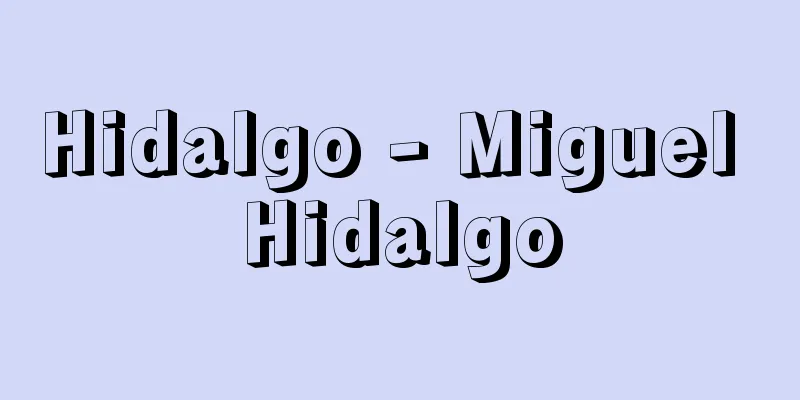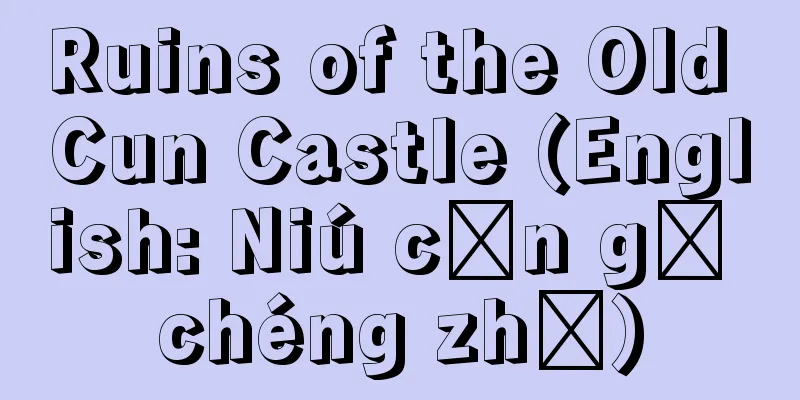Hidalgo - Miguel Hidalgo

|
Leader of the Mexican independence movement. Known as the "Father of Independence." Born the son of a farm manager in the mining state of Guanajuato, he became a priest. He bought his own farm and started grape growing and sericulture, working to modernize agriculture and handicrafts, while also being influenced by European ideas. When Napoleon occupied Spain in 1808, a movement for Mexican independence from Spain arose, and Hidalgo also participated in it. On September 16, 1810, in response to oppression by the Spanish authorities, he called on the people of the village of Dolores in the parish to rise up in armed revolt. This was called the "Cry of Dolores." Mainly the lower classes responded, and within a month he had taken control of the central and northern regions, declaring the emancipation of slaves and the return of land to the indigenous people. In October, he led a crowd of up to 80,000 people and approached Mexico City. However, he retreated because he could not get the cooperation of the Criollos (white people born in Mexico) who feared the lower classes. The following year, he was captured and executed in a counterattack by the Spanish army. However, the independence movement was taken over by his subordinate Morelos. [Takashi Noda] Circa 1900-1910 Print from the Metropolitan Museum of Art Hidalgo Source: Shogakukan Encyclopedia Nipponica About Encyclopedia Nipponica Information | Legend |
|
メキシコ独立運動の指導者。「独立の父」とよばれている。鉱山地帯グアナフアト州の大農園管理人の子に生まれ聖職者となった。自ら農園を購入してブドウ栽培や養蚕を始めるなど、農業や手工業の近代化に努力し、他方ではヨーロッパ思想の影響も受けた。1808年ナポレオンがスペイン本国を占領すると、メキシコのスペインからの独立を目ざす運動が起こったが、イダルゴもこれに参加した。1810年9月16日、スペイン当局の弾圧をきっかけに、教区ドローレス村の民衆に対し武装蜂起(ほうき)を呼びかけた。これを「ドローレスの叫び」という。おもに下層民衆がこれに呼応し、1か月足らずで中北部一帯を支配下に置き、奴隷解放、原住民への土地の返還などを宣言した。そして、10月には8万人に達する民衆を率いてメキシコ市に迫った。しかし、下層民衆を恐れるクリオーリョ(メキシコ生まれの白人)の協力が得られず撤退した。翌年スペイン軍の反撃を受けて捕虜となり処刑された。しかし、独立運動は部下のモレロスに引き継がれた。 [野田 隆] 1900~1910年ころ 版画メトロポリタン美術館所蔵"> イダルゴ 出典 小学館 日本大百科全書(ニッポニカ)日本大百科全書(ニッポニカ)について 情報 | 凡例 |
>>: Italic languages - Italic
Recommend
Penetrating nematocysts
…Cnidocytes are cell organelles that are containe...
Benda, G. (English spelling) BendaG
...Mozart and Weber also created the Singspiel &q...
Jivaka (English spelling)
...Medicine was organized into a system of knowle...
Stuffed Animal - Hakusei
The process of removing the flesh and internal org...
Educational Finance
It refers to the series of activities carried out...
Coacervation
…The phenomenon in which colloidal particles disp...
Jaggayyapeta
...It is widely believed that artistic activity i...
Shonai Plain - Shonai Heiya
An alluvial plain in northwest Yamagata Prefectur...
Dramatic criticism
It refers to the evaluation and critique of the re...
Udaiji Temple
…It was a government temple located in Kujo Ichib...
The Miracle Story of the Virgin Mary
Miracle stories are Christian edifying stories in ...
Glaser, D.
...The latter theory is that criminal behavior, l...
Andreas Franz Wilhelm Schimper
German botanical geographer. Born in Strasbourg. ...
tshog śiṅ (English spelling) tshogsin
There is also a unique form called the multi-deit...
Siberian iris
…(3) Biedres irises (those without hair-like proj...


![Urawa [city] - Urawa](/upload/images/67cb01416648f.webp)






